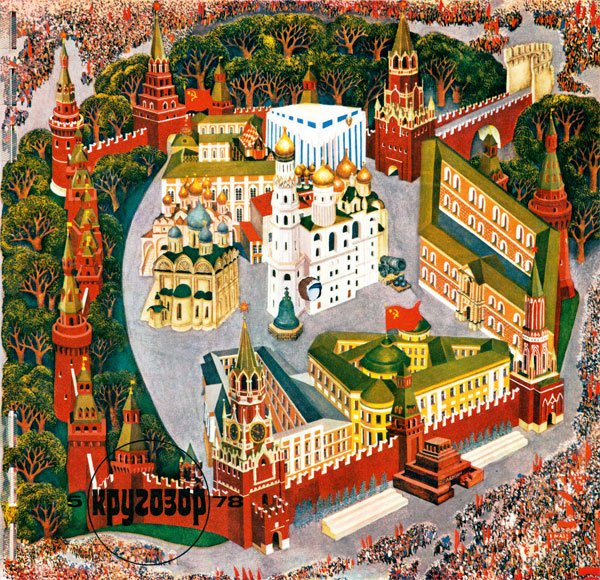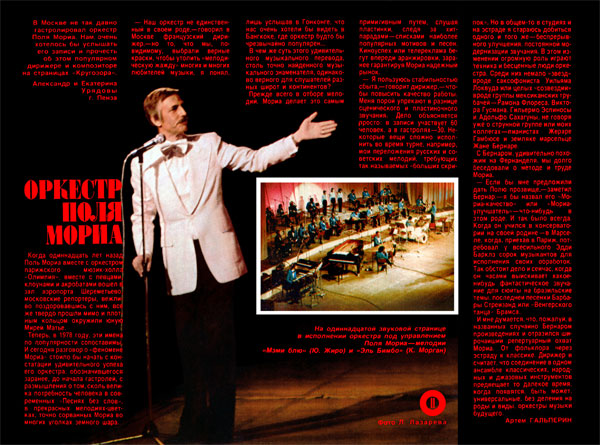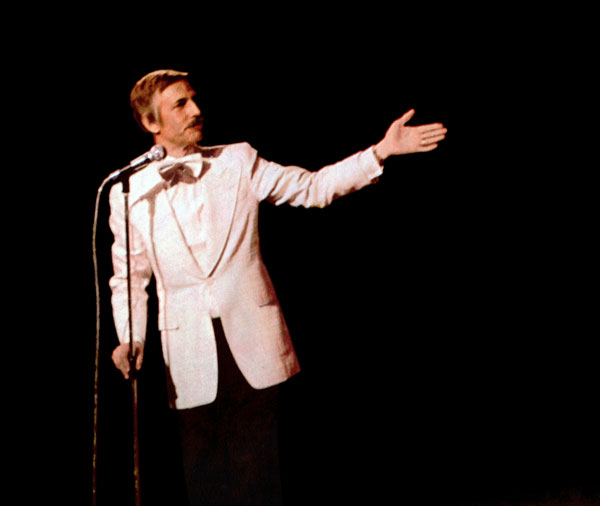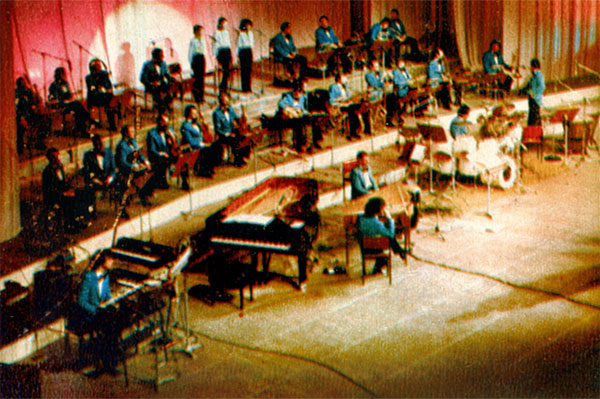ARTICLE ABOUT PAUL MAURIAT AND HIS GRAND ORCHESTRA
by "Krugozor" magazine, Russia, No.5, May 1978
Many, many thanks to Dmitry Zhoukov for providing me this article and the translation from Russian!

PAUL MAURIAT ORCHESTRA
By Artem Galperin
Photos by Leonid Lazarev.
From a letter to the editor: "Not so long ago, Paul Mauriat's orchestra toured in Moscow. We would very much like to hear his recordings and read about this popular conductor and composer on the pages of Krugozor. Alexander and Ekaterina Uryadov, Penza.

When, eleven years ago, Paul Mauriat, together with the orchestra of Parisian music-hall Olympia, together with singers, clowns and acrobats entered the hall of Sheremetyevo airport, Moscow reporters, having politely greeted him, nevertheless firmly passed by and surrounded the young Mireille Mathieu in a tight ring... Now, in 1978, these names are comparable in popularity. And today it would be worthwhile to start talking about the "Mauriat phenomenon" with a statement of the amazing success of his orchestra, which was indicated in advance, before the tour began, with a reflection on how great a person's need for modern "Songs without Words", for beautiful melodies-flowers, as if plucked Mauriat in many parts of the world.
"Our orchestra is not the only one of its kind," the French conductor said in Moscow,
"but the fact that we, apparently, have chosen the right colors to quench the" melodic thirst "of many, many music lovers, I understood only when I heard in Hong Kong, that we would very much like to see in Bangkok, where the orchestra seems to be extremely popular....
What is the essence of this amazing musical translation, such a precisely found musical denominator, equally true for listeners of different latitudes and continents? First of all, in the selection of melodies. Mauriat does this in the most primitive way, listening to records, following the hit parades - lists of the most popular tunes and songs. Cinema success or TV commercials run ahead of the arrangement, guaranteeing Mauriat a reliable market in advance.
"I take advantage of the stability of sales," says the conductor,
"to improve the quality of my work. I am sometimes reproached for the difference between stage and record sound. The reason is simple: 60 people are involved in the recording, and 30 are on tour. Some things are difficult to perform during the tour, for example, my transcriptions of Russian and Soviet melodies that require so-called "big violins". But in general, in studios and on stage, I try to achieve the same thing - continuous improvement, constant modernization of the sound. The technique and invaluable people of the orchestra play a huge role in this change. Among them there are many "stars" like saxophonist William Lockwood or whole "constellations" like a group of Mexican trumpeters - Ramon Flores, Victor Guzman. Guillermo Espinosa and Adolfo Sahagun, not to mention the string group or my colleagues - pianists Gerard Gambus and fellow countryman Jean Bernard from Marseille.

With Bernard, who is remarkably similar to Fernandel, we talked at length about the method and work of Mauriat.
"If I was offered to give Paul a nickname," - Bernard remarked – "I would call him "Mauriat-quality" or "Mauriat-enhancer" - something like that. And it has always been that way. When he was studying at the conservatory in his homeland - in Marseille, when, having arrived in Paris, he demanded forty musicians from the all-powerful Eddie Barclay to perform his arrangements. This is the case now, when he spends hours looking for some fantastic sound for a suite on Brazilian themes, the last song by Barbra Streisand or Brahms' Hungarian Dance."
And I think that, perhaps, the works that Bernard accidentally named reflected the broadest repertoire of Mauriat. From folklore through stage to classics. The conductor believes that the combination of classical, folk and jazz instruments in one ensemble foreshadows that distant time when, perhaps, universal, without division into genera and types, orchestras of music of the future will appear.

On the eleventh sound page performed by the orchestra under the direction of Paul Mauriat - the melodies "Mamy blue" (Y. Giraud) and "El bimbo" (K. Morgan)